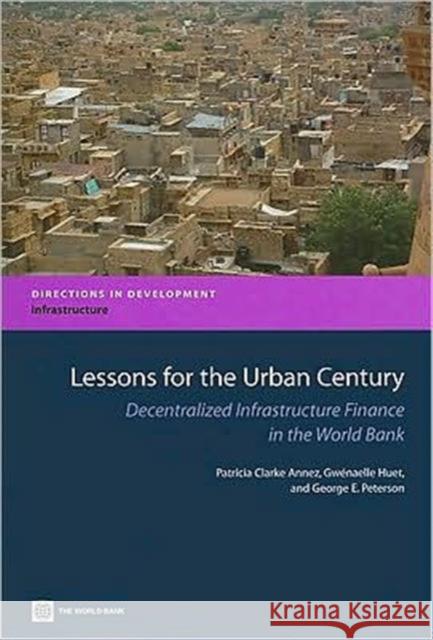Lessons for the Urban Century: Decentralized Infrastructure Finance in the World Bank » książka
Lessons for the Urban Century: Decentralized Infrastructure Finance in the World Bank
ISBN-13: 9780821375242 / Angielski / Miękka / 2008 / 120 str.
The world has passed a significant threshold: it is now more urban than rural. Urban areas under 1 million in size are projected to absorb a population increase of nearly one half billion in the next fifteen years. These developments will give rise to demands for investments in infrastructure in thousands of cities and towns. Given the simultaneous move toward decentralization of fiscal responsibilities, the weak financial and technical capacity of local governments will become an increasingly serious constraint. Reaching large numbers of municipalities with relatively small investment needs will become a critical function of development programs. 'Lessons for the Urban Century' provides insights on how to meet that challenge, using evidence from the World Bank's operations supporting decentralized urban infrastructure finance. These projects use domestic institutions to do the work of channeling finance to sub-national entities (municipalities, local utilities, or community groups) on behalf of the Bank. This feature is critical to reaching large numbers of municipalities, and is fundamental to 'scaling up.' This is the first study of its kind, and offers encouraging results. As a group, these projects have performed better than the average. A variety of successful designs have been tried and adapted in a host of different contexts. The most important lesson learned from this review is that successful models require tailoring to reflect the context: the state of local governments, intergovernmental relations, fiscal federalism, financial sector development, and the political economic forces at play in local and central government. This conclusion is illustrated with a variety of examples from World Bank project experience.











